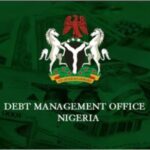Nigeria’s quest for naira stability faces significant challenges, including large fiscal deficits, a growing debt burden, and persistently high inflation rates. These factors threaten to undermine the progress of ongoing foreign exchange reforms, as noted by Ugodre Obi-Chukwu, founder and CEO of Nairametrics, during the Finance Correspondents Association of Nigeria (FICAN) 2025 economic outlook event.
Obi-Chukwu emphasized that addressing the naira’s challenges requires a sustained and sufficient supply of foreign exchange. He highlighted the widening disparity between the naira’s actual value and its exchange rate, which is influenced by the strengthening dollar and increased competition for dollar inflows among emerging markets. In his analysis, he warned that fiscal deficits remain a core driver of exchange rate depreciation. High borrowing costs add further pressure as Nigeria faces looming debt repayment deadlines. Additionally, Nigeria’s heavy reliance on crude oil exports and imports to meet domestic consumption needs makes the naira vulnerable to global oil price fluctuations.

Obi-Chukwu provided potential exchange rate scenarios, advising businesses to hedge against risks. He predicted a possible depreciation of the naira to ₦2,200 per dollar in a worst-case scenario, while a best-case scenario could see the naira stabilize at ₦1,700 per dollar.
Despite these challenges, Obi-Chukwu identified factors that could bolster the naira’s stability. These include the anticipated reductions in U.S. interest rates which could improve capital inflows into Nigeria, very attractive yields on fixed-income and equity securities could encourage foreign and domestic investments, removal from FATF Grey List as this is expected to enhance foreign exchange remittances and inflows, Enhanced Foreign Exchange Management System (EFEMS) which was recently introduced by the Central Bank of Nigeria (CBN) aims to improve transparency, credibility, and price discovery in forex transactions. Also, the oil sector reforms could unlock significant capital inflows.
Obi-Chukwu acknowledged that recent forex reforms by the CBN have made some headway. Over the past three months, investor confidence has grown despite parallel market depreciation. The CBN’s interventions in retail forex markets and continuous inflows from International Money Transfer Operators (IMTOs) have improved liquidity and contributed to price stability.
As of December 2024, Nigeria’s inflation rate stood at 34.8%, reflecting a marginal 0.20% increase from the previous month. Obi-Chukwu urged businesses to prioritize critical expenditures now, warning that delays could lead to higher costs. He also noted that higher interest rates provide opportunities for local currency investments in government securities, which currently offer returns exceeding 25%. Nigeria’s fiscal landscape remains precarious, with the country’s total public debt reaching ₦135.8 trillion by the end of 2024, a 39% year-on-year increase. Obi-Chukwu projected that the government would borrow approximately ₦12 trillion in 2025, exceeding the ₦8 trillion outlined in the proposed budget.
To bridge the fiscal deficit, the government is expected to increase taxation. While Obi-Chukwu acknowledged that the new tax bill might face resistance, he believes it will eventually pass. He stressed that maintaining high oil prices and meeting production targets are critical to stabilizing the exchange rate and addressing the fiscal gap.
Obi-Chukwu highlighted the government’s focus on capital expenditure as a potential silver lining. Accelerating infrastructure development across Nigeria could strengthen the economy and support naira stability. He concluded that achieving broader economic stability requires a comprehensive approach that addresses fiscal imbalances, promotes investment, and leverages ongoing forex reforms.



